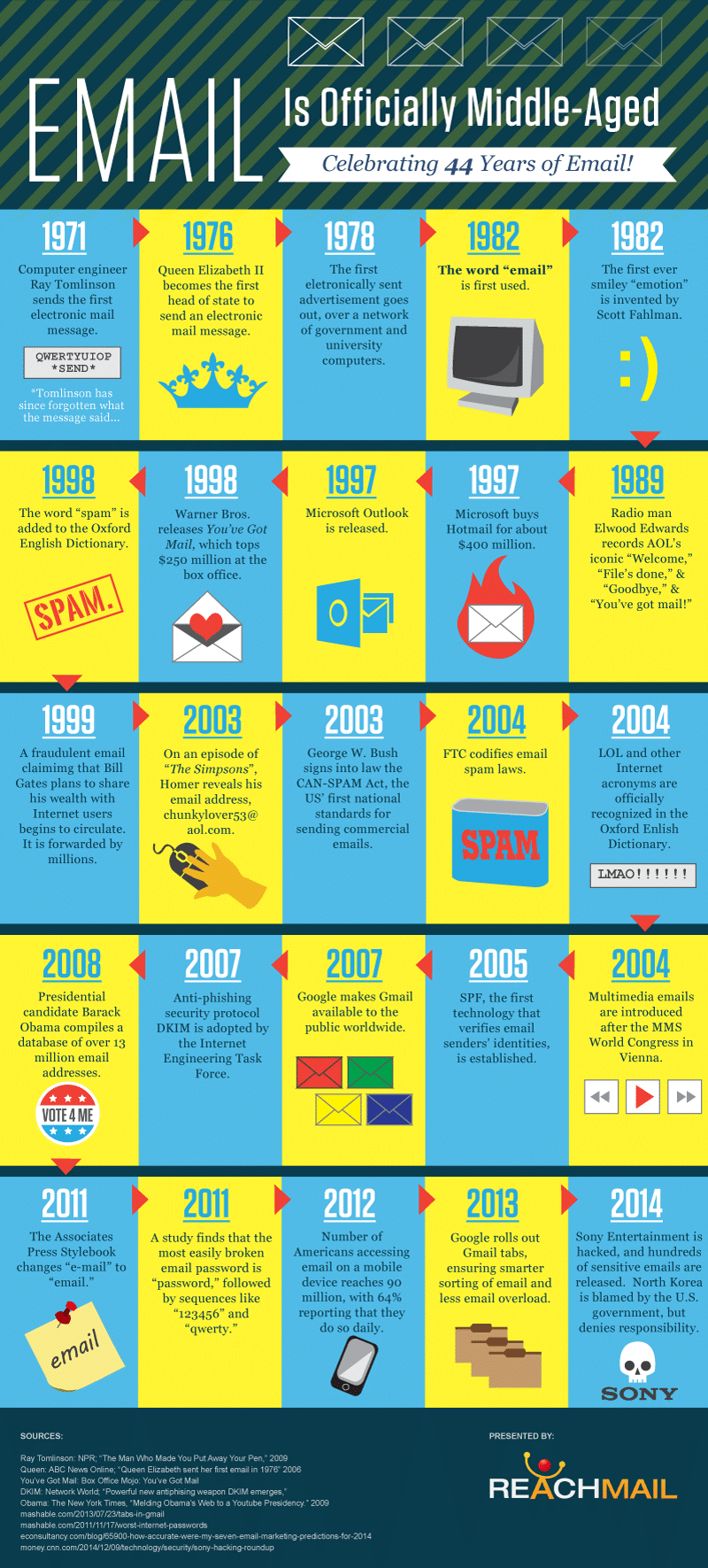It is easy to forget the past when the present is evolving seemingly without constraints. If you think about it, many of you reading this can probably not remember a day when email was not part of your everyday work. Even mentioning snail mail, or letters as they were used to be called, would set off grim expressions on most teenagers faces today. But despite email’s hold on the world, it was not an overnight success.
The very first email was sent by computer engineer Ray Tomlinson back in 1971, and even though it is one of the world’s most historic events, Tomlinson can no longer remember exactly what it said. Here’s the kicker, it would take yet another 11 years (1982) until we would start calling it “email”.
On top of that, it would take 27 years until the word “spam” was introduced into the Oxford English Dictionary. However, this doesn’t mean that spam didn’t exist until then. The first electronically sent advertisement was first sent in 1978, seven years after the first electronic mail was sent. So if you’re wondering how on earth spam has become such an annoyance, the explanation is quite simple. Spammers have had quite a while to come up with clever ideas how to bypass your spam filters and fling spam messages into your inbox.
It’s mind-blowing to think that electronic mail has been around for more than 44 years. According to research done by Radicati Group Inc., we send over 100 billion emails per day. We are expected to send over 132 billion emails per day in 2017, just two years from now. It’s an almost unfathomable amount of emails, however, most of these are spam. As a matter of fact, it is believed that over 70% of all emails sent is spam.
In order to give you a better overview of just how incredible the phenomenon we call email has really been, ReachMail has put together an infographic called Email Is Officially Middle-Aged: Celebrating 44 Years Of Email. This infographic will take you through email’s 44-year journey and highlight some of the most interesting events throughout its ever expanding timeline.


